Bob Rotella: How To Master The Mental Game
Tips to improve your mind came from the legendary golf psychologist
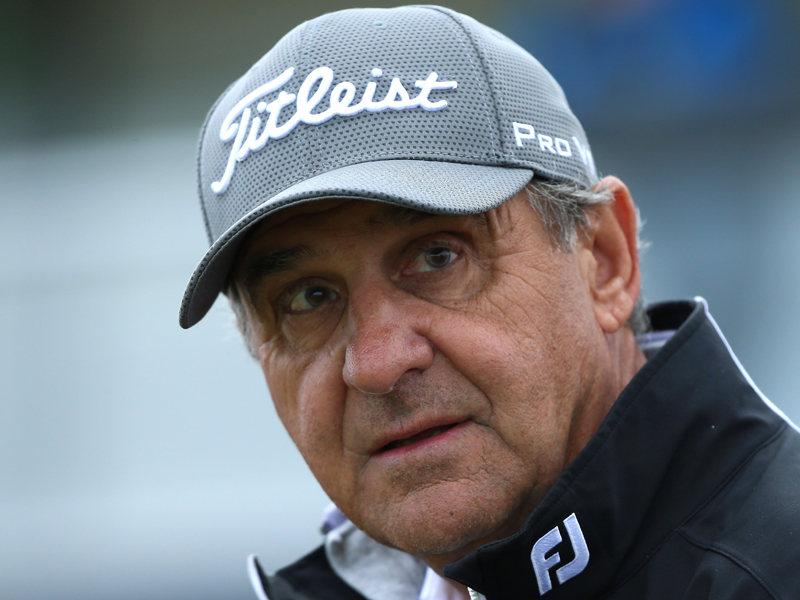
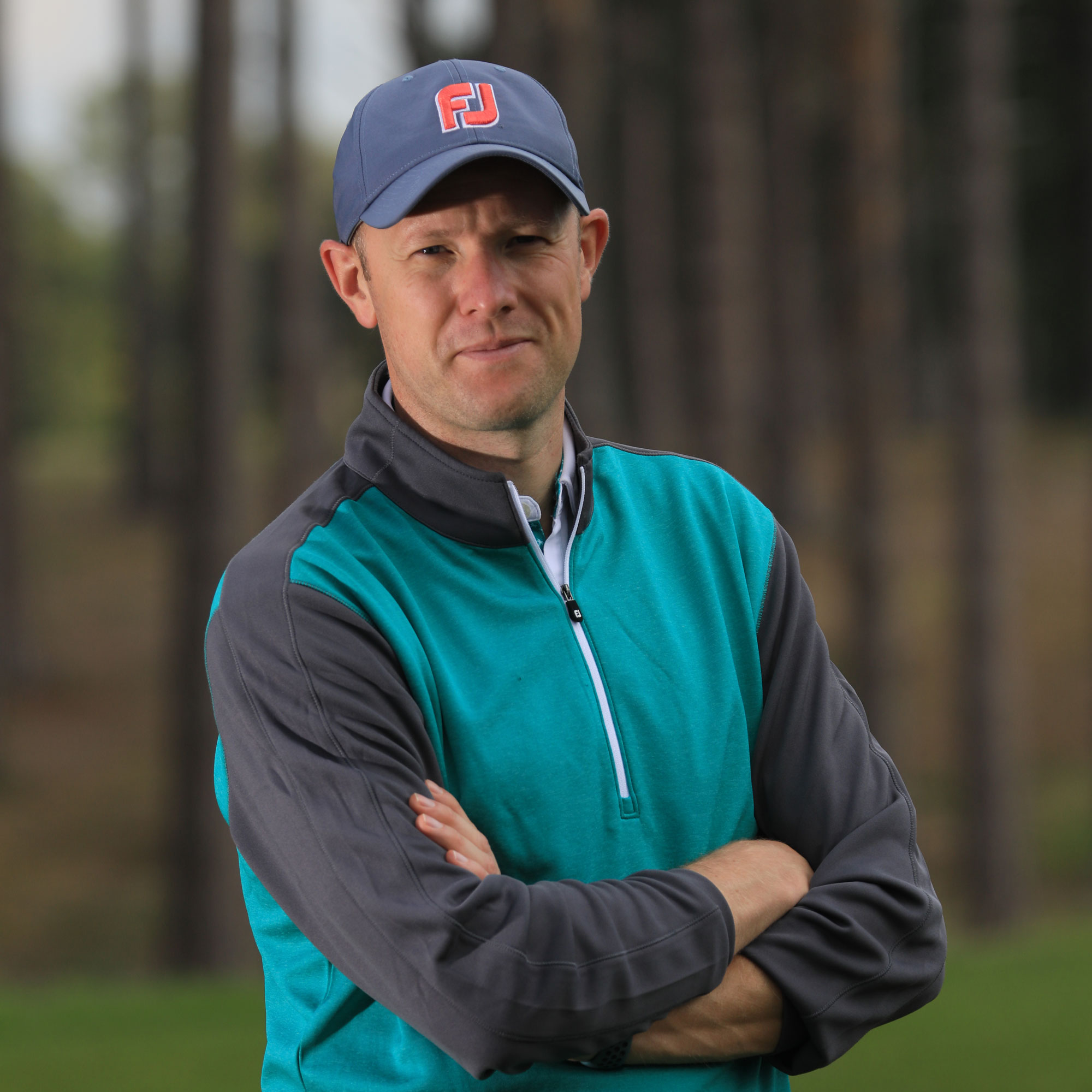
Golf Monthly talks to legendary performance psychologist, Bob Rotella, about the importance of the mind in golf and how you can improve your mental game
Bob Rotella: How To Master The Mental Game
Dr Bob Rotella is one of the most prominent psychologists in sport. His work with Padraig Harrington helped the Irishman win three Majors in two years, taking him from a successful tour player to one of the game’s greats.
Rotella understands that negative thoughts can lead to negative results and he has seen at first hand how golfers of all abilities are prone to self-doubt and nervousness. His life’s work has been dedicated to understanding the mind and offering advice on how to control it.
He has written some of the most well-known instruction books in the game, including Golf Is A Game Of Confidence and Putting Out Of Your Mind.
Here we throwback to our 2015 interview with the legendary mental game coach about the importance of a strong mind, the bad habits golfers fall into and how to put things right…
Why is the mental game so vital in golf?
Get the Golf Monthly Newsletter
Subscribe to the Golf Monthly newsletter to stay up to date with all the latest tour news, equipment news, reviews, head-to-heads and buyer’s guides from our team of experienced experts.
There’s a big difference between hitting balls on a practice range and playing golf. So getting your mind in the right place plays a big role. Basically the mind controls the body and the body responds to what the mind is thinking and seeing. So your mind’s got to be in the right place and your emotions have to be in the right place. Your emotions tend to fall in place if your mind is clear.
Golf is a game of mistakes by definition. The bottom line is you’re going to make a lot of mistakes every time you play golf. The best golfers in the world average about 12 greens in regulation so even the best are missing about six greens a day. How well you score depends on mentally and emotionally being able to accept those mistakes.
I think a lot of it is getting people to accept golf as it is, instead of thinking they’re going to be the first person in history to perfect the game. Basically when you try to perfect the game, effectively you’re saying ‘I don’t like golf the way it is, so I’m going to be the person to change the game into a game that’s perfect.’ If you’re thinking that’s what you’re supposed to do to be good, well you’re never going to win.
Related: 5 golf psychology tips
Can you improve your mental game or is it a natural talent?
I think there are very few people who have a natural aptitude towards it. I mean, in general, people who look like they have a natural aptitude towards it are just people who came by the game easily and probably had a lot of success early.
Roughly 70 per cent of the players on tour are working with someone, whether it’s me or someone else, on getting their mind and their emotions in the right place so they can play the game the way they know they’re capable of doing.
Rotella with Padraig Harrington and Bob Torrance after the Irishman's 2008 Open win
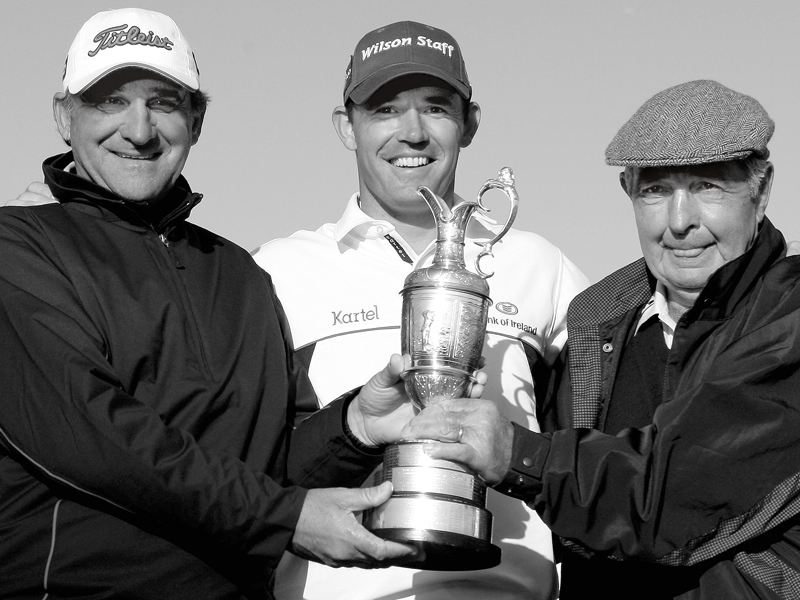
You could be a calm, laid-back, easy-going person and you might not demonstrate being as frustrated or upset as openly as other players, but I think the challenge is if you practise this game and readily admit to yourself that you’d like to get good at it, at that moment the mind and the emotions start playing a role.
I think for someone who really doesn’t ever practise, doesn’t ever play much and doesn’t really care at all about seeing how good they can get, it’s probably pretty easy to stay cool and calm. But if you’re playing in competition or you think to yourself that you’d like to be a single-digit or a scratch golfer or you just want to see how good you can get, the game can be frustrating.
It doesn’t matter if it’s a tee shot or an iron shot or a putt. It doesn’t take much to get in your way. It’s about getting people to learn how to get out of their own way so they can do something they know how to do.
Obviously, if someone has no idea how to hit a wedge shot, their problem probably isn’t their head. There’s a skill component involved. So with a 20-handicapper, all getting your head in the right place is going to do is it’s going to allow you to play to the level of skill that you have. If you put a 25-handicapper against a scratch golfer, the scratch golfer could beat the 25-handicapper without having a good head. Once you equalise ability and skill, mind and emotion become very important.
What are the bad habits people get into and why are they bad?
The number-one bad habit is fear and doubt. The fear of hitting a bad shot is probably what hurts people more than anything. I’d say number two is constantly adding up your score during the round and trying to figure out what you’re going to shoot when you’re on the 7th fairway.
I’d also say trying too hard would be way up there for most people. Most people if they went outside and kicked a football around, they wouldn’t do a whole lot of thinking. Put a golf club in their hands and they start thinking about all kinds of things. So getting people to be more unconscious so they can be athletic would be very important.
Related: 8 mental game do's and don'ts
What role does your memory play?
I talk a lot about getting people to have an instant amnesia of their mistakes but a long-term memory of their good shots and putts. We’d like them to attach strong positive emotions to their good shots. Most people have a tendency to attach strong emotions to their bad stuff and have no emotion attached to the good stuff.
The reason that’s a problem is because we tend to have a longer memory of experiences that we attach strong emotions to. So you’d be a lot better off if you attached strong emotions to all of your good stuff – feelings of joy, pride, satisfaction, elation, happiness. On the flip side, having a blank response to the bad shots you hit is equally important.
What can players do in practice that will help them when they’re playing for real?
Try to make your practice sessions similar to the golf course by changing targets and golf clubs on every shot. Playing the first nine holes of your golf club in your mind on the practice facility would certainly be helpful.
Getting a really good pre-shot routine, both mentally and physically, and going through it on every shot would really help a lot. As I write in all my books, spending a lot of time practising from 100 yards and in, instead of spending all your time ripping drivers on the driving range, would be a really good idea.
Why do nerves seem to affect a player’s short game more than with their long game?
I don’t think they necessarily do. Let’s take two of the best players of the last 15 years, Tiger Woods and Phil Mickelson. They are probably two of the worst drivers of the golf ball and if you watch them on the range they hit it pretty good.
So I think it’s whatever part of the game you have some doubt in, nervousness tends to affect a lot. If someone has a lot of doubt or fear in their chipping, it’s going to cause them to skull shots. Whatever part of your game you have the most fear in is going to be the most affected.
What advice would you offer people on how to overcome a specific shot they fear?
Most clubs don’t like hearing this, but the number-one thing I tell people to do is take their golf cart out to a specific hole at night or early in the morning when there’s no one around. Get a bunch of balls and practise your routine, hitting balls on that tee box until you build some confidence by seeing yourself hit good shots.
The second thing is do a lot of visualising of yourself hitting good tee shots on that hole. Most people have a bad hole and they spend a lot of time thinking about hitting bad shots every time they contemplate that tee shot. You need to replace those bad images with positive ones.
Third thing is forget about the outcome of the shot and get into a really good pre-shot routine and let it go to the target.
For all the latest golf news, check the Golf Monthly website and follow our social media channels @golfmonthlymagazine on Facebook and @golfmonthly on Twitter and Instagram

In July 2023, Neil became just the 9th editor in Golf Monthly's 112-year history. Originally working with the best coaches in the UK to produce instruction content, he has also presented many Golf Monthly videos looking at all areas of the game from Tour player interviews to the rules of golf.
Throughout his time with the brand he has also covered equipment launches that date back well over a decade. He clearly remembers the launch of the Callaway and Nike square drivers as well as the white TaylorMade driver families, such as the RocketBallz! If you take a look at the Golf Monthly YouTube channel, you'll see his equipment videos dating back over a decade! He has also conducted 'What's In The Bag' interviews with many of the game's best players like Rory McIlroy, Dustin Johnson and Jon Rahm. Over the years, Neil has tested a vast array of products in each category and at drastically different price-points.
Neil is currently playing: Driver: TaylorMade Stealth Plus Fairway Wood: Titleist TSR2 Hybrid: Titleist TS3 Irons: PING Blueprint S (4&5), PING Blueprint T (6-PW) Wedges: Titleist Vokey SM7 50˚, 54˚, 60˚ Putter: Odyssey Triple Track Ten Ball: Titleist Pro V1X
-
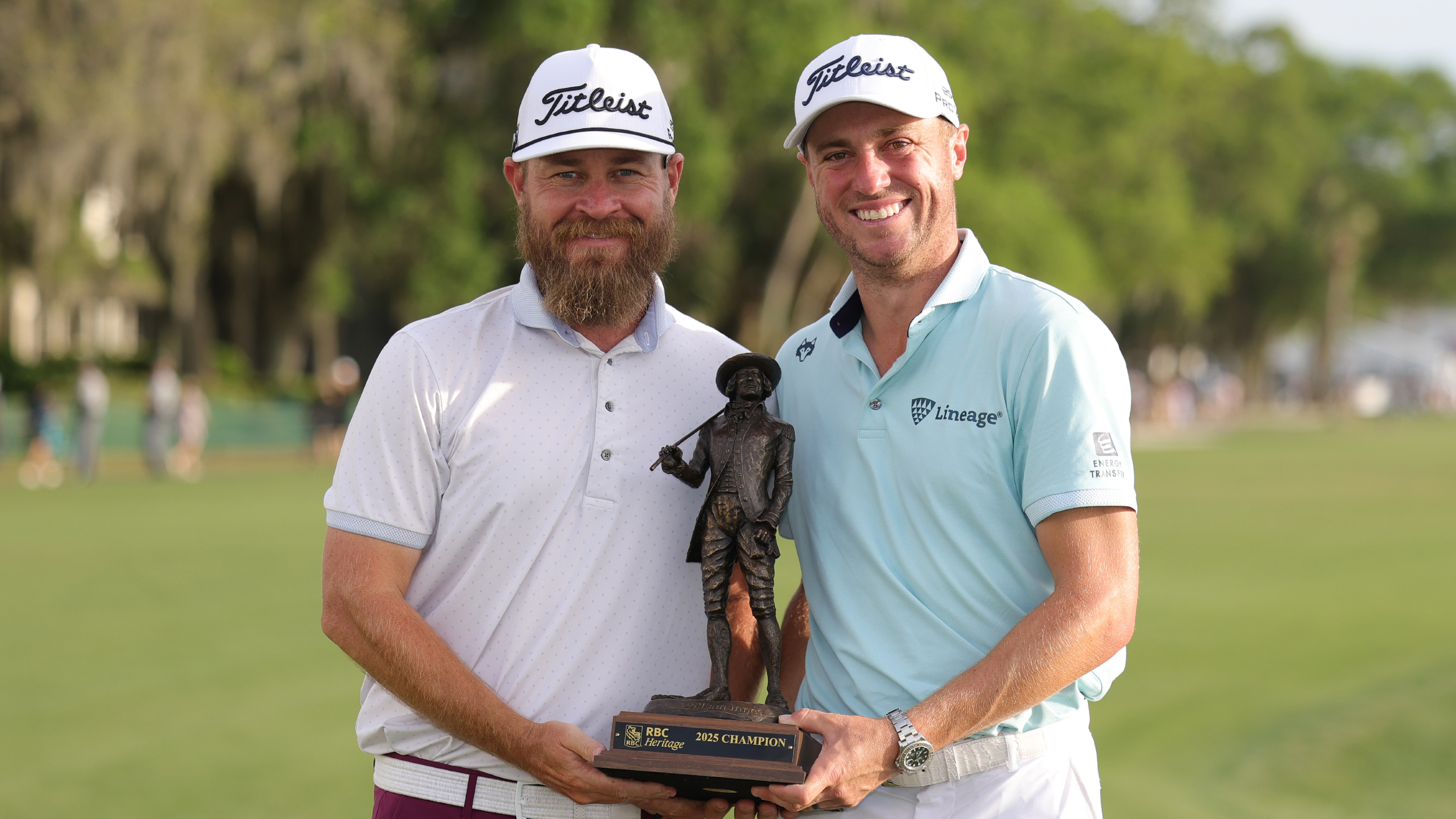 Two Weeks After Parting Ways With Max Homa, Caddie Joe Greiner Claims $360,000 Payday Alongside Justin Thomas
Two Weeks After Parting Ways With Max Homa, Caddie Joe Greiner Claims $360,000 Payday Alongside Justin ThomasJoe Greiner is caddying for Justin Thomas on a temporary basis, and the player’s win at the RBC Heritage has already secured him a big payday
By Mike Hall
-
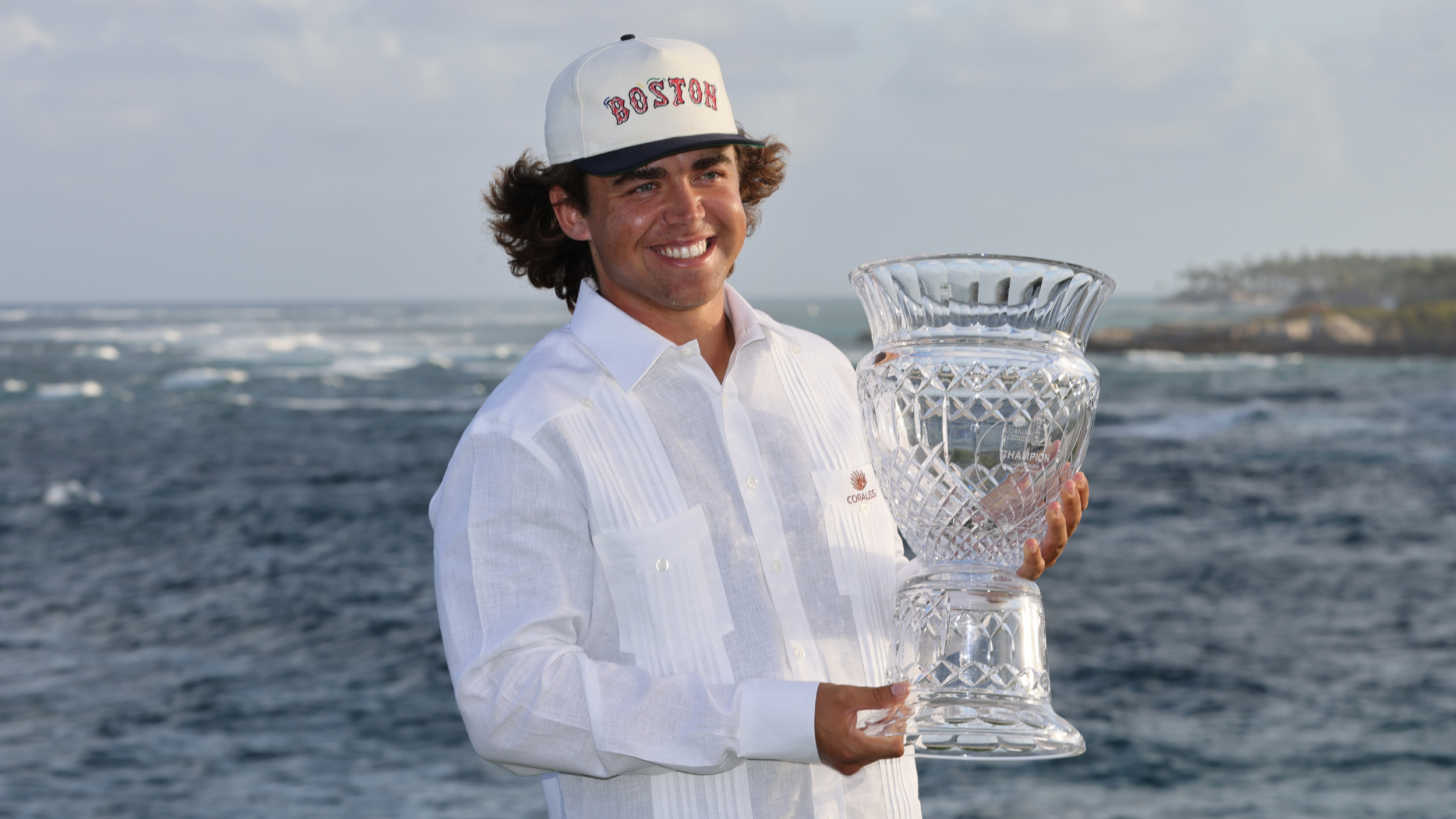 Garrick Higgo Wins Corales Puntacana Championship After Late Joel Dahmen Collapse
Garrick Higgo Wins Corales Puntacana Championship After Late Joel Dahmen CollapseThe South African claimed his second PGA Tour title after Joel Dahmen bogeyed the final three holes in the Dominican Republic
By Mike Hall